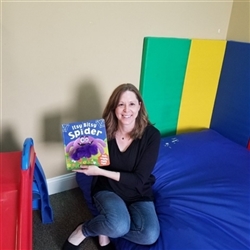School and ABA: Making the Right Choice for Your Child
Kelly Kruk
If you're wondering whether your autistic child should start school or continue full-time ABA therapy, you're facing one of the most challenging decisions in their early development. This choice feels especially overwhelming when well-meaning friends or family members ask, "Isn't it time for them to start school?" or when you see other children their age heading off to kindergarten or preschool.
The truth is, there's no universal "right" age or timeline. Every child's readiness looks different, and the decision depends entirely on your child's unique needs, skills, and developmental progress. As a BCBA who was once a classroom teacher myself, I've seen this decision from both sides, and I'm here to help you navigate it with confidence.
What to Consider About Starting School
Before making any decisions, it's important to thoroughly understand what your child's potential school placement would look like. Not all classrooms, teaching approaches, or support systems are created equal.
Questions to Ask Your Child's School
- What is the classroom setup?
- What is the student-to-teacher and student-aide ratio?
- How are students grouped by age, skill level, or learning goals?
- What are the priorities of the teachers in special education classrooms?
- Are caregivers allowed to observe the classroom, either in person or via Zoom?
I always encourage caregivers to observe both environments. Make sure you know what's happening in ABA with our open-door policy, and then observe the type of classroom placement they're recommending. Sometimes caregivers visit a general education classroom thinking it's the right fit, only to realize their child isn't quite ready for that environment yet. That's valuable information, not a setback.
- What does staff training & behavior support entail?
- Are classroom aides trained to handle behaviors like elopement, aggression, or tantrums?
- What strategies are used for managing problem behaviors?
- Is there a BCBA on staff at the school or district level?
- Are behavior supports like visual schedules, timers, or cue cards used regularly?
Understanding the school's approach to behavioral support will help you determine if it matches your child's needs. Pay attention to how staff interact with students during your observation. Look for educators who ask, "What's our plan to help them succeed?" rather than simply listing a child’s limitations.
- What safety protocols are in place?
- What safety measures are in place for children who might wander?
- Are there security features like classroom cameras or locked gates?
- What transportation options are available, and how is safety managed on the bus?
Safety is often a top concern for caregivers, and rightfully so. If your child is prone to elopement, ensure that the school communicates what they do to ensure the safety of their students.
These details matter significantly for your child's daily experience. For this list and more questions to ask during school visits, check out our guide.
What Full-Time ABA Offers
Full-time ABA isn't about delaying your child's education, it's about building the strongest possible foundation for their future success.
The reality is that while schools do incredible work, they face systemic challenges that can limit how intensively they can address individual needs. ABA therapy, on the other hand, meets your child exactly where they are and builds skills step by step.
- Individualized, Intensive Support: In ABA, your child receives one-to-one support from trained behavior technicians who receive constant supervision and training. While schools may provide a one-to-one paraprofessional, the training and oversight are typically different. This isn't a criticism of paraprofessionals, they do valuable work, but ABA staff receive specialized training in behavior analysis and skill acquisition that's specifically designed for autistic children.
- Proactive Approach to Challenges: ABA takes a proactive approach to identifying and addressing barriers that prevent children from succeeding. Rather than reacting to behaviors as they occur, we work to understand why they happen and teach replacement skills. We can work intensively on communication, helping children learn to ask for items, request help, or express their needs. These skills are fundamental for school success.
- School-Readiness Skills in a Structured Environment: In our Apple Academy program, we model the school environment with group transitions, circle time, art activities, and structured play. The difference is that it's individualized and one-to-one, allowing us to teach these skills at your child's pace. We can work on following group directions, transitioning between activities, and tolerating peers nearby.
- Daily Living and Independence: ABA therapy allows us to focus intensively on self-help skills that promote independence. While special education programs don't require children to be toilet trained, I work hard to achieve this goal because it reduces your child's vulnerability and need for one-to-one support. The more independent your child becomes, the better equipped they are to build friendships and succeed in group settings.
We can also work on complex behavior chains like unpacking a backpack, following morning routines, or managing transitions like last-minute schedule changes that frequently happen in busy classrooms.
How Do I Know My Child Might Be Ready for School?
Determining school readiness is much more than checking boxes on a list that includes items like “of school age”. It requires assessing whether your child has the foundational skills to benefit from and feel successful in a classroom environment.
Here are some key questions to help you determine if your child might be ready to transition:
- Can they sit and attend to activities for 10–15 minutes with brief breaks?
- Can they follow basic instructions like “come here,” “sit down,” or “get your materials”?
- Can they communicate their needs and wants through speech, signs, pictures, or a device?
- Can they tolerate peers nearby without distress or aggression?
- Do they have basic safety awareness, such as staying in designated areas and responding to adult instructions?
- Can they tolerate unexpected changes, like sudden transitions or shifts in routine?
They don’t need to master every skill to begin school, but these are strong indicators that they’ll be able to participate meaningfully and safely in a classroom.
If you're unsure about your child's readiness, lean on your ABA team and pediatrician for guidance. I often remind families to look at where their child is now compared to where they started. If they can ask for help, follow schedules, and communicate their needs, then they're ready!
Why After-School ABA Is Valuable
Starting school doesn't mean ending ABA therapy. In fact, many families find that combining both creates the most comprehensive support system for their child's continued growth.
- Reinforcing School Success: After-school ABA helps solidify the skills your child is learning in school. Are they maintaining the communication and social skills they've developed? ABA serves as a safety net. If skills start to slip, we can quickly address the gap and get your child back on track.
Once your child is in school handling the academic piece, we can shift our ABA focus to very specific areas like advanced social skills, homework completion, or whatever detailed needs emerge. It's like having specialized support that adapts as your child grows.
- Collaborative Problem-Solving: Good collaboration between school and ABA teams benefits everyone, especially your child. When teachers reach out saying, "He keeps running out of the classroom, we need help," we can observe, analyze the behavior, and develop strategies that work in the classroom setting.
I always approach schools as a team member, not as someone with all the answers. Having been a teacher myself, I know that if someone comes in telling you to change everything, you're likely to shut down. Instead, we say, "We're here to help you and help this child succeed in school. What do you need?"
- Modifying Strategies: Sometimes what we do in ABA isn't directly transferable to a classroom setting, and that's okay. Our job is to modify strategies to make them successful in the school environment, recognizing that teachers have many students and different constraints than we do.
I've had teachers observe our ABA sessions and comment, "You're so positive with him. I need to work with my paraprofessionals on that approach." These kinds of learning experiences benefit everyone and ultimately serve your child better.
Making the Decision with Confidence
Remember that as a caregiver, you have the right to make decisions about your child's education and therapy. Sometimes schools may pressure families by mentioning truancy or saying school attendance is mandatory, but clinical recommendations carry weight. I recently wrote a letter of medical necessity for a family whose school district was insisting on full-time school attendance and removing ABA support. We advocated successfully for a part-time school, part-time ABA schedule that serves the child's needs.
One of the most important things to understand is that this decision isn't set in stone. You can try school and return to full-time ABA if it's not the right fit. I often suggest keeping some ABA support in your "back pocket" during transitions until you're confident the school placement is working well.
Schools may seem inflexible initially, but once we build relationships with them, most are willing to compromise and find solutions that work for everyone. I've had teachers come observe our program before a child transitions, and we regularly send staff to observe in classrooms to better support the transition.
Remember that your clinical team is there to help you weigh the pros and cons objectively. We're not going to push you one way or the other, but we will help you gather all the information needed to make an educated decision and advocate for what they need.
Moving Forward Together
What matters most when deciding to transition into school is that you make the decision based on your child's unique needs, not external pressures or arbitrary timelines. Trust your instincts, lean on your clinical team for guidance, and remember that there's no shame in taking the time your child needs to build essential skills first.
At BPI, we're here to support whatever path serves your family best, ensuring your child has every opportunity to succeed and thrive. If you're navigating this decision and want guidance from our experienced team, reach out to BPI today. We're here to help you explore your options and create a plan that supports your child's unique journey.







.png)